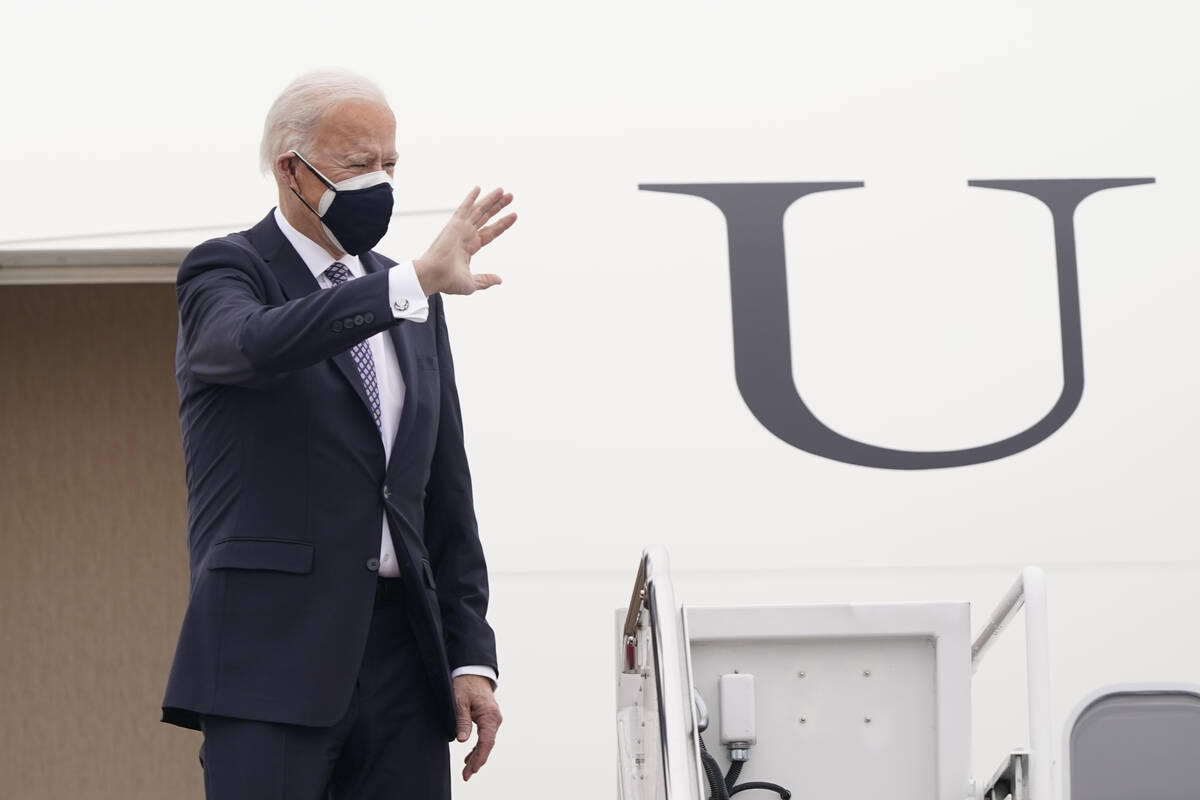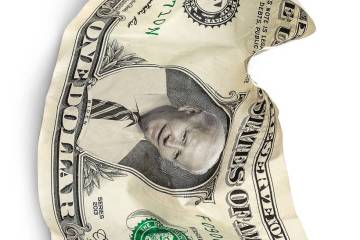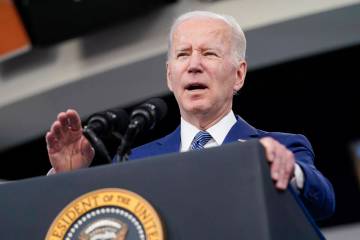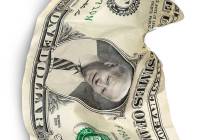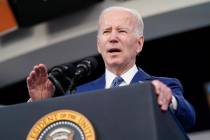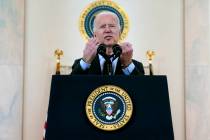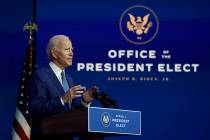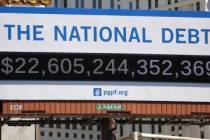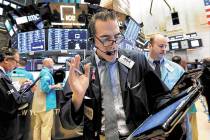RICHARD A. EPSTEIN: The Biden bust-up
When Joe Biden was elected president last November, he had a modest mandate of sorts which he has failed to carry out. Biden won his party’s nomination because he was perceived to be less progressive than either Bernie Sanders or Elizabeth Warren, and thus more acceptable to the broad bloc of independent voters who’d had enough of Donald Trump’s various tantrums and outbursts.
But he had no coattails — and thus a small majority of seats in the House and a dead-heat in the Senate, which makes his shaky Vice President Kamala Harris the deciding vote if the party can keep each of the 50 Democratic senators in line.
At that point, Biden’s best strategy was to woo his centrist Democrats for the simple reason that his boisterous progressive wing had nowhere else to go. He could survive as a president without any legislative triumphs so long has he avoided any major failure on either the domestic or international front.
But from his very first day in office, he was determined to push his partisan Build Back Better program through both executive orders and legislation. The apparent strategy was to force major reforms though Congress even though the dominant public sentiment called for caution.
As a result, his polling numbers have dropped by at least 10 percentage points, with his greatest losses coming from the independent voters who gave him his decisive majority last November. It is doubtful that Biden could beat Trump today, even after the horrific events at the Capitol on Jan. 6. Swing voters are more likely to look forward than backward in the mid-term elections, where it is seems likely at this point that the Democrats could lose their slim majorities in both houses of Congress.
Unfortunately, the Democrats have tried to double down on failure.
The constant commentary coming from squads of progressive writers takes two tacks. The first is to claim that there is nothing wrong with the Biden agenda. What it needs is a clearer exposition to win over a skeptical public, which has been misled by dishonest Republican propaganda. The second is to insist that the entire situation will turn around if the Democrats are able to score a big win on the transformative $3.5 trillion spending bill now tied up in the Senate. But here they are misreading the tea leaves.
The current sentiment in the United States is tilting away from a call for Big Government. not for an expansion. At this point, Build Back Better is rightly in trouble as being the wrong legislation at the wrong time, with its stem to stern overhaul of the economy. The proposal’s clumsy efforts to redistribute wealth from the relatively rich to the relatively poor runs the risk of hurting everyone by triggering a decline in investment that, in turn, will lead to a decline in wages and job creation, coupled with increased, not transitory, inflationary pressures.
But instead of offering any reasoned responses to these concerns, the progressive wing of the party has relentlessly blasted the two skeptical Democratic senators — Joe Manchin of West Virginia and Kyrsten Sinema of Arizona — to make it appear that they would rather purge both from the party than work toward compromise. The progressive Democrats are playing with fire by holding passage of the bipartisan infrastructure bill hostage to their ragtag package of educational and family reforms that they describe as “human infrastructure” — a clear perversion of language.
Biden might be able to improve his image if he took on his own progressive wing. But he has made a hash of every other issue, both domestic and foreign, by combining autocratic decision-making with bad substantive choices.
For instance, he achieved an epic defeat by pulling out — against the advice of his generals — all troops from Afghanistan at the end of August, which allowed a Taliban takeover that has led to a repressive religious regime presiding over an impeding economic meltdown. He then compounded that failure, both by wrongly blaming his generals for bad advice and by keeping his NATO allies out of the loop. The impending crisis of confidence will hamper the ability of the United States to form useful alliances against Russia, Iran, China and North Korea — all of whom sense Biden’s lack of resolve.
Biden has made similar failures on other fronts. His excessive reliance on solar and wind energy will produce major energy shortfalls at home and abroad — and while he grudgingly is tempering his hostility to fossil fuels and fracking, he is still handing a huge chip to Russia by allowing it to exert strategic control over energy supplies to Western Europe. Similarly, his unilateral action of canceling the Keystone XL pipeline by executive order on the day he took office has created deep tension with Canada, while increasing the likelihood of systematic power outages around the United States.
Yet any supposed gains on the global warming front are elusive at best in line of the succession of forest fires that pour far more carbon dioxide into the atmosphere than all the tailpipes throughout California. It will not win over the American public to lecture its members about the sin of having excessive reliance on ubiquitous, cheap and reliable power.
Similarly, on immigration, the utter chaos at the southern border also shows how presidential indecision, coupled with vice presidential ineptitude, creates both a logistical nightmare for the United States and a human tragedy for the many aliens hoping against hope to gain entry into the United States. Supply chain woes and a spotty labor market, with record quits and record vacancies, don’t help the president either.
It is not a pretty picture. Biden’s best friend is the strong stock market performance. But don’t be under any illusion: That positive development is driven by the increasing likelihood that Build Back Better won’t make it through increasingly choppy political waters.
Richard A. Epstein is a professor at the New York University School of Law, a senior fellow at the Hoover Institution and a distinguished service professor of law emeritus and senior lecturer at the University of Chicago. His Review-Journal column appears quarterly.



